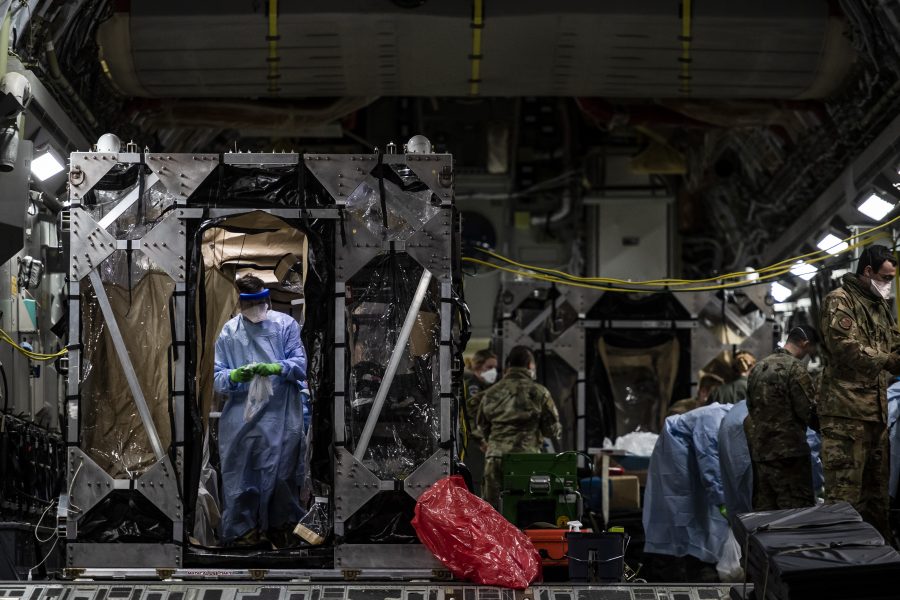The Air Force employed specially designed isolation pods to transport highly contagious COVID-19 positive patients from Afghanistan to Germany on April 10, the first use of the system during the new coronavirus outbreak.
Three U.S. government contractors in Afghanistan tested positive for COVID-19, the disease caused by the new coronavirus, and needed to be medically evacuated to Landstuhl Regional Medical Center for treatment. On April 8, U.S. Transportation Command ordered Air Mobility Command’s 618th Air Operations Center to prepare a C-17 with a full Transportation Isolation System. A team of aeromedical evacuation specialists, Critical Care Air Transport Team members, infectious disease doctors, and technicians launched within 24 hours of receiving orders from U.S. Transportation Command.
The service had anticipated the need, and already had aircraft and TIS staged at Ramstein Air Base, Germany.
“Through the meticulous effort of AMC’s planners over the past few weeks, in coordination with U.S. Transportation Command, we’ve produced a detailed plan that guides our crews on how to safely and effectively move ill patients to a location where they can receive greater care, all while providing protection for our aircrew, medical personnel, and aircraft,” said Brig. Gen. Jimmy Canlas, commander of the 618th AOC, in a release.
The Transportation Isolation System was developed in 2014 for the Ebola outbreak in West Africa, and the April 10 mission was its first use for coronavirus. With the demand for the systems expected to grow, AMC has designated Joint Base Charleston, S.C., to be the training hub for aeromedical evacuation Airmen to become proficient in using the system. There are 10 instructors at the base and about 100 personnel have been trained on the system as of April 10, according to an AMC release.
Separately, Air Force Materiel Command is developing a new system, called the Portable Bio-Containment Module, for the long-term infectious patient transport mission. This system stems from an urgent operational need requirement established in March, with initial flight testing expected in April, according to AFMC.
